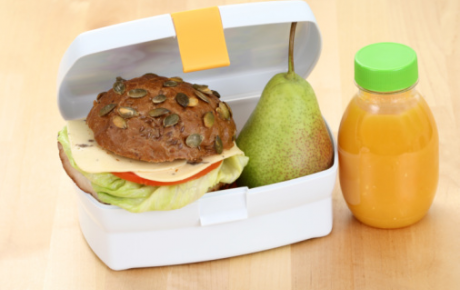Well-nourished child is prepared to learn, has higher concentration and achieves better results. We should ensure that our young players receive healthy second breakfast which will give them energy for another hours of studying.

Well-nourished child is prepared to learn, has higher concentration and achieves better results. We should ensure that our young players receive healthy second breakfast which will give them energy for another hours of studying.
However, besides the choice itself, developing conscious eating is very important. We want to be sure that our children do not waste our prepared meals. It is necessary to increase their interest in the components of food. It can be done in several ways, below you can find few strategies.
1. Plan meals together with the young player. The ideal meal should have these three, four different groups of foods: protein – cheese, eggs, peanut butter, yoghurt, milk, legumes, lean ham, wholemeal carbohydrates – crackers, bread, wholemeal waffles, tortillas and milk products, vegetables/fruit. Encourage him to prepare or pack his own breakfast. Child’s physical contact with the preparation of second breakfast increases the probability that it will be eaten.
2. Try new foods. Into his food container pack products which have never appeared in his nutrition plan, for example tropical fruits.
3. Pack more snacks for friends, if your children usually eat only few foodstuffs. As second breakfast, prepare a bigger portion of something new. Using pressure and strength of the environment will encourage our child to take the snack more willingly even if it’s something new. In the upcoming week, prepare celery sticks with peanut butter, they should convince even the most demanding consumers.
4. Invest in portable food containers: small fridges with cooling pads, thermos flasks, insulated bags. Using that kind of containers can expand the product range eaten on second breakfast. Containers with cooling pads are intended to keep lower temperature of food, thereby extending the freshness of the food. They reduce the risk of food poisoning.
5. Prepare second breakfast for yourself. If you don’t eat second meals during the day, the probability of your child not eating them either, increases.
Proper nutrition patterns are formed since an early age and are a base for developing proper diet in the future years.
If you have any questions, write to me erwina.szymczyk@soccerskills.pro
dietary consultant, PSS Erwina Szymczyk